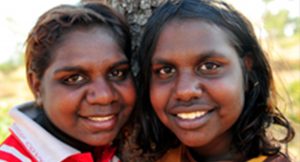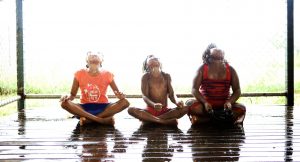What are Homelands?
Homelands are communities where Aboriginal people can maintain connection to their traditional lands. For Aboriginal people, this connection to traditional lands or ‘country’ is of central importance to identity and culture.
The benefits of homelands include:
Thanks to you
Thanks to the amazing work of Amnesty supporters from across Australia who signed petitions, contacted MPs, spoke to media and donated to the campaign we saw some great progress. Your voice made governments accountable for their ill-treatment of Aboriginal people and their traditional homelands.


Commonwealth and NT governments commit to supporting homelands
In March 2012, the Commonwealth and Territory governments announced $221 million dollars in funding for homelands. The money was to be distributed to homelands communities in NT over the next 10 years, ensuring basic services like clean water, garbage collection and sanitation are take care of.
The Australian Government announces a $4 million funding boost for the Utopia homelands
In early 2012, extra funding was announced to upgrade housing and infrastructure on Utopia homelands. With proper services like health, education, water and shelter, people can be healthier and live longer on their homelands.

What's Next
While we made great progress during this campaign Amnesty continues to monitor the situation across Australia.
Sadly in 2014, the government demolished the Oombulgurri homelands in Western Australia after forcibly evicting its remaining residents in 2011. Amnesty ran a campaign to stop the demolition. The support from all of our activists gave hope to the people of Oombulgurri and brought significant media attention to their plight.
Since late 2014, Amnesty International has been working with local and national partners to monitor the situation in Western Australia, where Premier Colin Barnett said that up to 150 homelands communities in remote Western Australia may face closure.
Mr Barnett’s comments about closing remote communities came after a decision of the Federal Government to cease funding municipal and essential services for remote communities in all states and territories from June 2015. In return it will give a one-off lump sum payment to States and Territory Governments where the Commonwealth is currently funding remote communities.However there is no guarantee any of it will be passed on to remote communities. This is funding the Commonwealth has been responsible for more than 50 years.
This has sparked a growing movement of people and organisations advocating for Indigenous homelands in Australia, demanding that governments close the gap and not communities. All Indigenous peoples have the fundamental human right to their traditional lands. Homelands are central to the culture and identity of many Aboriginal people. Amnesty continues to monitor government policy relating to traditional homelands and continues to advocate for their protection.
Want to do more to protect the
rights of Indigenous People?
Check out our Community is Everything campaign which aims to end the overrepresentation of Indigenous kids in the justice system.